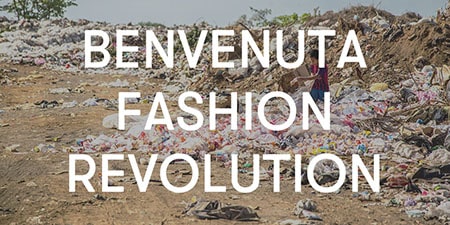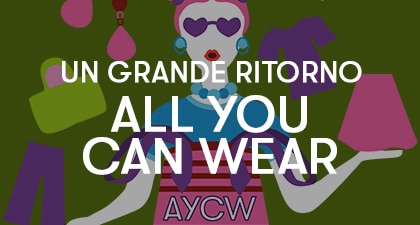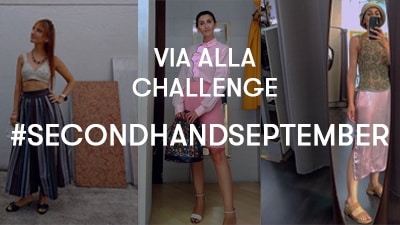
At Di Mano in Mano, we strive to approach fashion, dressing, and clothing with passion, irony, a sense of lightness, carefree spirit, creativity, and freedom. We are also aware of how harmful unbridled consumerism is to our Planet in many ways. This week is a bit special for the world of fashion and clothing. Perhaps some of you have already noticed, especially those who follow Social Media, something related to the so-called “Fashion Revolution Week”.

As we mentioned earlier: freedom, the kind that many fashion workers, mostly women, do not have. They live in slavery, forced to work nonstop with wages that are literally starving, in conditions that endanger their health and even their lives, often subjected to violence and mistreatment.
This situation exploded with the rise and spread of so-called fast fashion, a mass-production model where clothing giants release new collections every two weeks. These massive productions take place in countries such as India and Bangladesh, as well as China, Indonesia, Croatia, and many others.
Big fashion companies move their production to these countries precisely because labor is very cheap, allowing them to cut production costs and achieve very low final prices, which results in a greater profit for their pockets. The customer, for their part, more or less unaware, happily takes home their 2-euro T-shirt and 10-euro jeans.

This brief and very summarized introduction, we realize, was necessary to give you the context in which, on April 24, 2013, the tragedy of Rana Plaza occurred. It was (and is) a huge multi-story building in Bangladesh, which housed several garment factories, and that day it collapsed on itself.
We quote from “Wikipedia“: “It is considered the deadliest industrial accident in a textile factory in history, as well as the deadliest structural collapse in modern human history.”
Over a thousand people died and 2,500 injured bodies were pulled from the rubble. It was a tragedy of such apocalyptic proportions that it could not be ignored by the media, and it sparked a series of initiatives aimed at making clothing production more sustainable both from an environmental and ethical perspective.
One of these is the “Fashion Revolution Week“, which, established by the non-profit organization of the same name, takes place around this sad anniversary. The initiatives proposed by Fashion Revolution are many, mostly activations of consumers demanding information and transparency in the production chain of the garments they buy and wear. We invite you to take a look at their website if you want to participate or even just learn more about what we are briefly sharing with you.

We end this brief article with a quote from Lucy Siegl, writer, journalist, and activist: “Fast fashion isn’t cheap, someone, somewhere is paying for it“. The point is that everything has a price, even items that have a very low price tag.
So, happy Fashion Revolution Week! If you need new clothes, buy items that last, that you truly love, that represent you deeply, and ask yourself where they come from. And don’t forget that reusing, recycling, and reinventing is the most sustainable action possible.






